








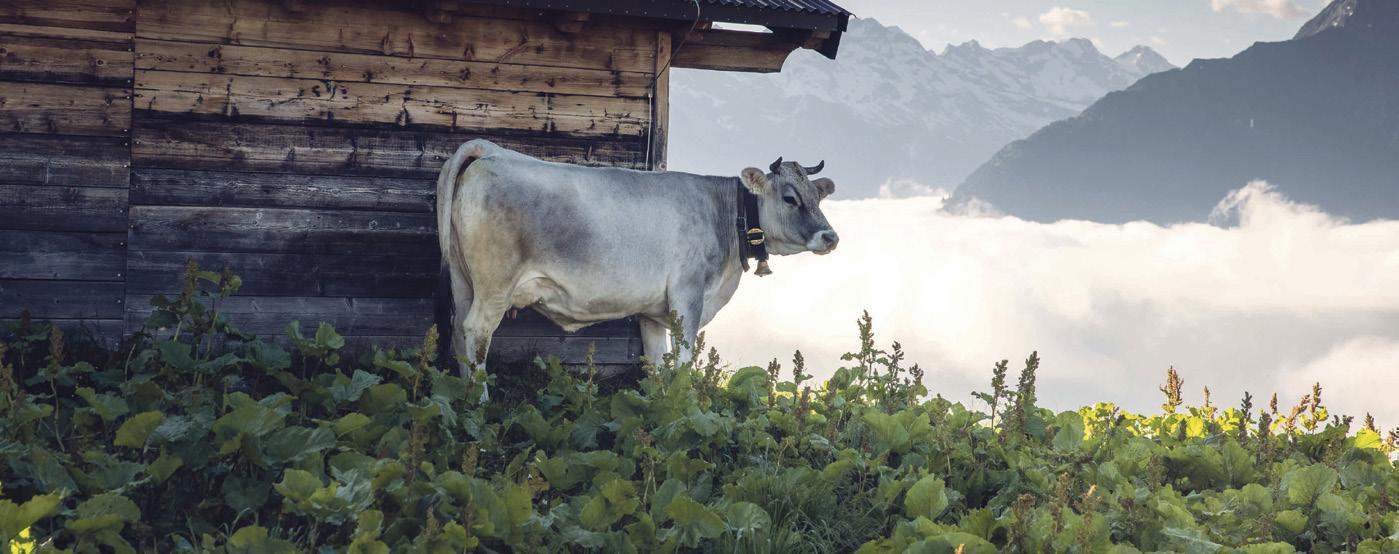
BIOFACH, the World’s Leading Trade Fair for Organic Food and VIVANESS, the International Trade Fair for Natural and Organic Personal Care, returns to its winter dates – February 14-17 – at the Messe in Nuremberg.
In the midst of great social and economic tensions, the organic sector has not faltered despite the adverse circumstances generated by Covid-19 and the war in Ukraine. This is the case for many reasons: Products from organic agriculture stand out for their contribution to the fight to safeguard biodiversity, they improve soil fertility, promote food sovereignty, conserve resources and adapt to changing climate situations. They are also key to security of supply, thanks to the well developed economic model and greater independence for their development.
“Only ‘real prices’ will allow business to be done within the limits that our planet can support, leading to the success of a food and agriculture industry that is truly useful to our children. International organizations and the government must take full advantage of the potential of organic products”, are the words of Tina Andres, president of the German Federation of the Organic Food Industry (BÖLW).
 Marco Schlüter, Executive Director of IFOAM – Organics Interna-
Marco Schlüter, Executive Director of IFOAM – Organics Interna-
tional explains: “Organic practices have shown a clear ability to offer solutions and guarantee a safe and sovereign food supply, because this sustainable way of doing business strengthens the autonomy of farmers and generates added value at a regional level.”
2,700 exhibitors from all over the world


“We are looking forward to bringing the organic food and natural and organic cosmetics communities back together in Nuremberg and offering them a framework for innovation and transformation, inspiration and creation of networks. In this edition, our international professional visitors will be able to enjoy the wide range of products from around
2,700 exhibitors, 200 at VIVANESS”, remarks Danila Brunner, BIOFACH and VIVANESS director.
The fair is the ideal setting for networking, the place to find inspiration to innovate and transform, to meet the right people and exchange knowledge.
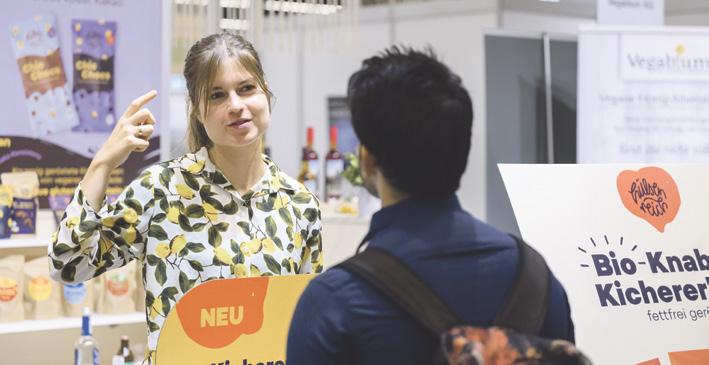
“Specialized trade” sited in hall 9 is the meeting point aimed at retailers and dealing with the matters that concern them most, such as: How can they stay in the fight for supremacy between food retailers and discount stores? What solutions does the industry offer to the increasingly crucial drivers of regional sourcing and supply chains? What unique selling points can point the way forward?
New to this year’s fair is BIOimSEH, in collaboration with bioPress Verlag, which debuts in this edition, where independent retailers can meet experts in the acquisition of complete ranges of organic food.
To go into the future and establish networks. In this space, those interested in the sector, new companies and already established organic food companies meet and debate ideas, policies, research results, etc.
To inspire and support young people interested in the ecological sector. Training and professional
In the Land of Mountains, organic is a matter of the heart with a long tradition. Our natural, clean landscape provides unrivalled resources. The officially sanctioned, red and white AMA bio label ensures maximum quality. Regular audits assure compliance with strict regulations. Which are more elaborate than specified by the EU‘s Ordinance on Organic Farming, allowing this organic farming pioneer to report steadily growing sales.
“Our international professional visitors will be able to enjoy the wide range of products from around 2,700 exhibitors, 200 at VIVANESS”
Danila Brunner
Montse Mulé Cardona, Bio Eco Actual Editor|redaccion@bioecoactual.com
development. Organized in collaboration with Kugler & Rosenberger
The BioThesis Research Award will be presented there.
Every day with more and more presence, plant-based products can be seen and tasted first hand in the presentations and cooking demos which, after many years with the collaboration of ProVeg, this year features two new partners – Aöl and VegOrganic.
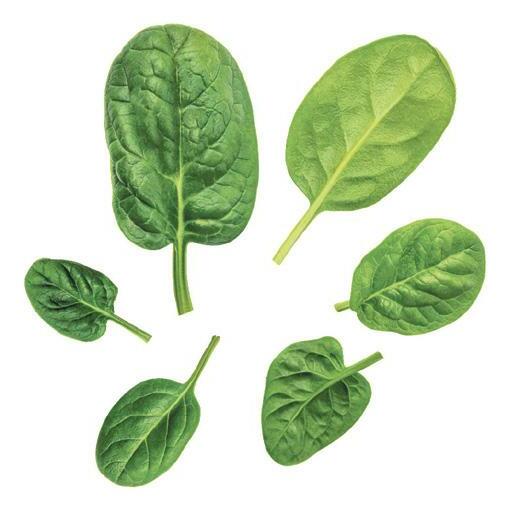
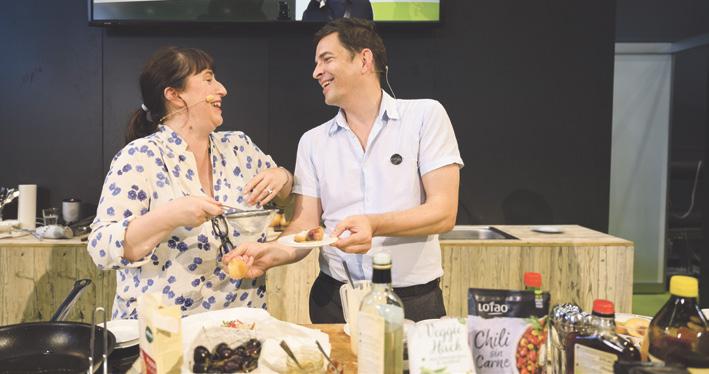
Both BIOFACH and VIVANESS exhibitors present their novelties at the international fair, highlighting trends and showing the latest innovations in products. One again, visitors can vote for products in seven categories for the The Best New Product Award. Startup companies participating in VIVANESS have a specially dedicated lounge, the Breeze lounge.
Organized in collaboration with Unverpackt e.V., this is the area where you can delve deeper into the latest innovations in sustainable packaging and zero waste.
BIOFACH Congress. VIVANESS Congress: “Organic. Food sovereignty. True prices.”
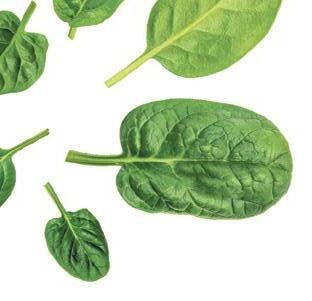
Organized as usual by IFOAM –Organics International, BÖLW (Fed-
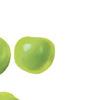


eration of the Organic Food Industry) and BIOFACH, this year the Congress has as its central theme “Organic. Food sovereignty. Real prices.” A space to debate, share concerns, transmit knowledge, and exchange dialogue, the Congress is the heart of the fair where the ecological movement paves the way for the essential transformation of food systems worldwide. The urgent questions to be debated are: What contribution can the organic system make to food security and sovereignty? How can “true prices”, those that include the consequent ecological costs, pave the way to the vital transformation of the agri-food industry?
“Especially in these times, it is more important than ever to meet and exchange ideas and knowledge in person, and look to the future to prepare the ground for the issues that will define it. In other words, to
pave

Added value
Digital tools allow exhibitors to introduce themselves, establish contacts and hold meetings within the platform. All participants can follow the congress live or later on videoon-demand through the digital platform.
PUBLISHER:
DIRECTOR
The sustainability labelling of food, including organic food, informs consumers about the impact behind the production of a given food product. It is important consumers are not misled by these labels.
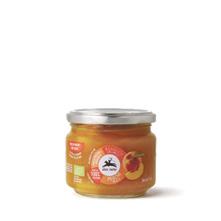
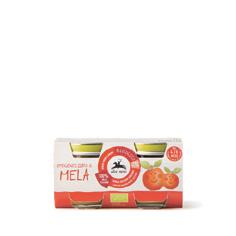


The Farm to Fork strategy published in May 2020 notes that the European Commission will “make a legislative proposal for a framework for a sustainable food system before the end of 2023”. The aim of this framework is “to accelerate and facilitate the transition and ensure that all foods placed on the EU market become increasingly sustainable”. As part of this framework, the Commission intends to “create a sustainable labelling framework that covers, in synergy with other relevant initiatives, the nutritional, climate, environmental and social aspects of food products” This sustainability label, or at least the principles thereof, is
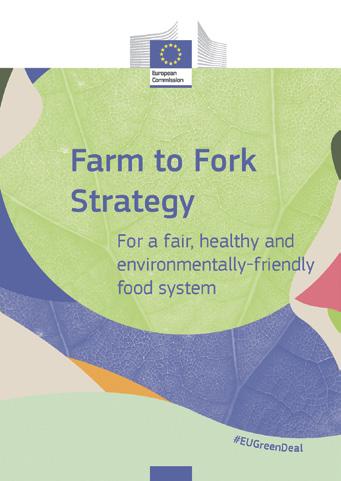
also expected in 2023, and is led by the European Commission’s Directorate-General for Health and Food Safety (DG SANTE).

The European Commission is also working on an upcoming legislative
proposal to help justify (‘substantiate’) green claims and prevent greenwashing. It is expected to reveal the proposal for a “Regulation on Substantiating Green Claims” based on the Product Environmental Footprint (PEF) methodology, under the lead of the Commission’s Directorate-General for Environment (DG ENV), in the coming weeks.

While substantiating green claims and sustainability labelling do not aim to address the same problems (greenwashing and providing sustainability information respectively), these two Commission proposals could be heavily intertwined. Indeed, substantiating green claims based on the Product Environmental Footprint (PEF) could legitimise the use of this method also for a sustainability label. As a report by the think tank IDDRI shows, the calculation method behind a sustainability label is a political decision on the desirable future of agriculture production. Methods based on life-cycle analysis, such as
the PEF, point towards sustainable intensification by design, and not to a transition of the current food system towards organic and other agroecological practices.
Therefore, the Commission’s proposal runs the risk of being misleading and worsening ongoing greenwashing in the food and fashion industries. Together with NGOs, the organic movement has taken a strong stance against this in a recent joint letter on apparel and footwear products and an (earlier) letter on agrifood products.
While using the Product Environmental Footprint (PEF) methodology, which is based on a life cycle analysis (LCA) to assess a product’s impact on the environment, may be relevant for manufactured industrial products, this methodology is not adequate to assess the environmental
We are a brand of more than a thousand organic farmers and processors who have, since the 1970s, striven both within Italy and farther afield to produce delicious, healthy,and nourishing food that comes from agriculture that respects the land.
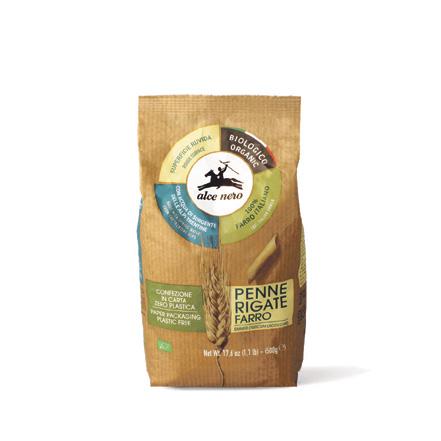
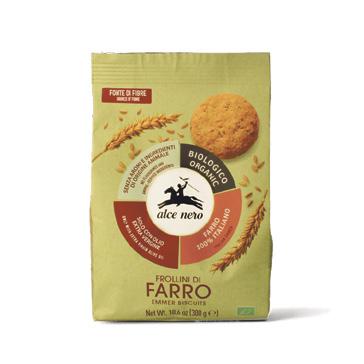
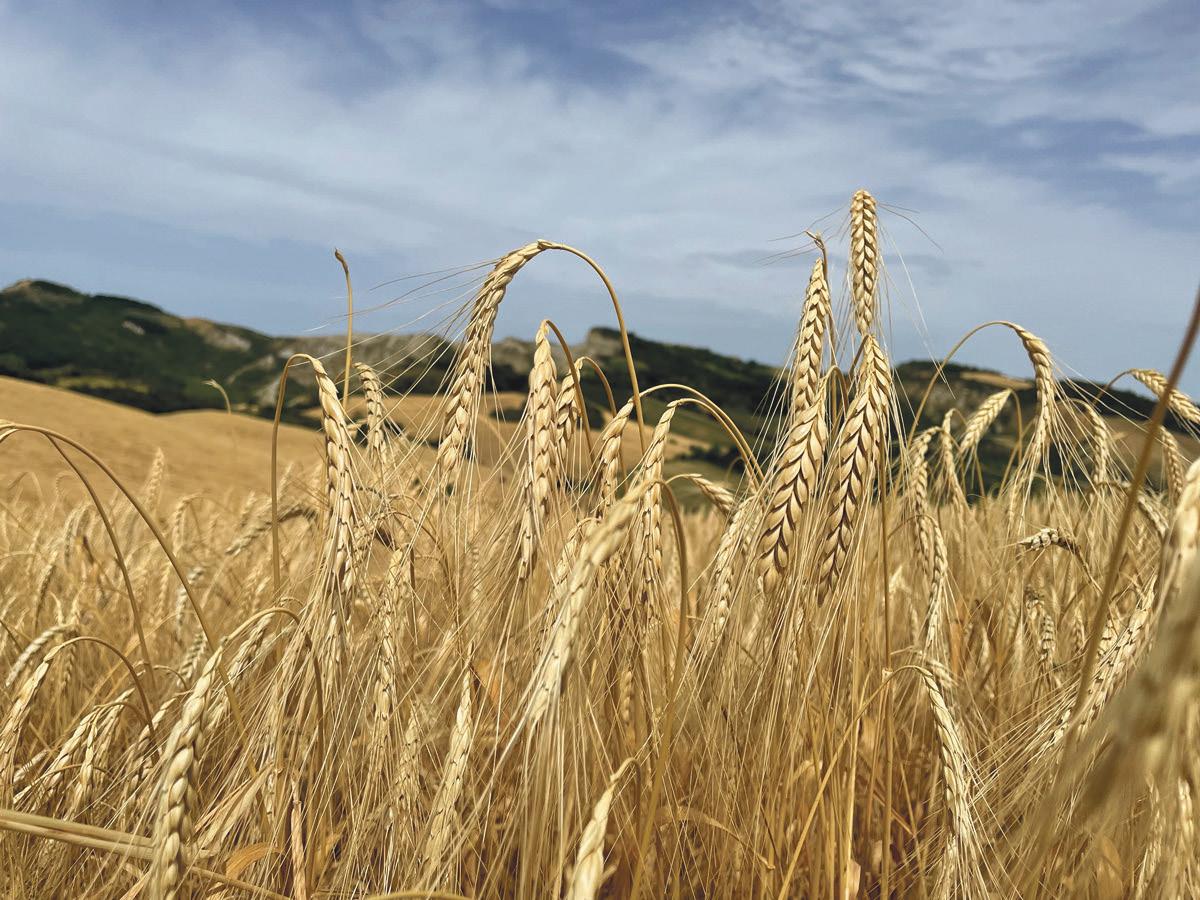
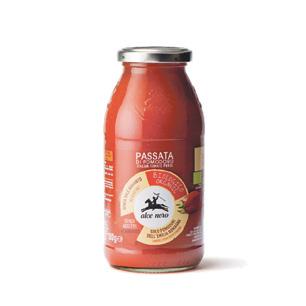
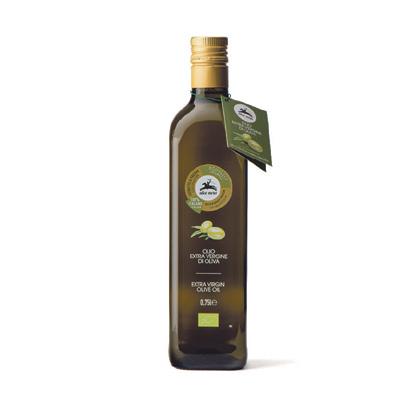
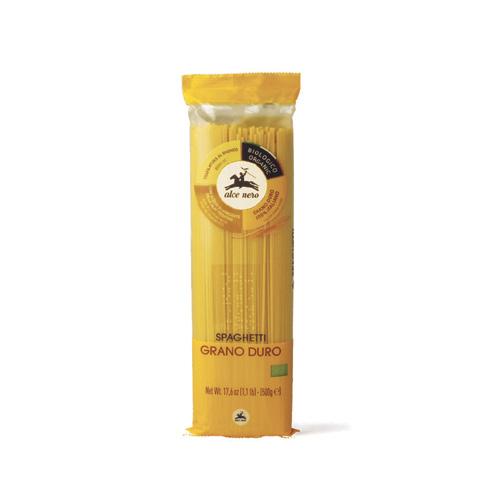
performance of bio-sourced products, such as food products and textiles.
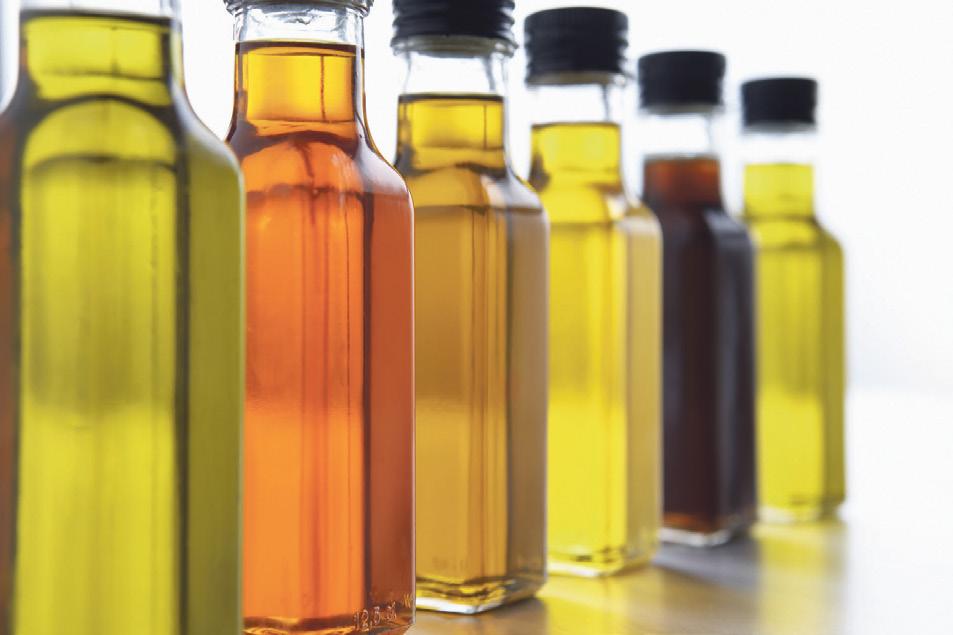

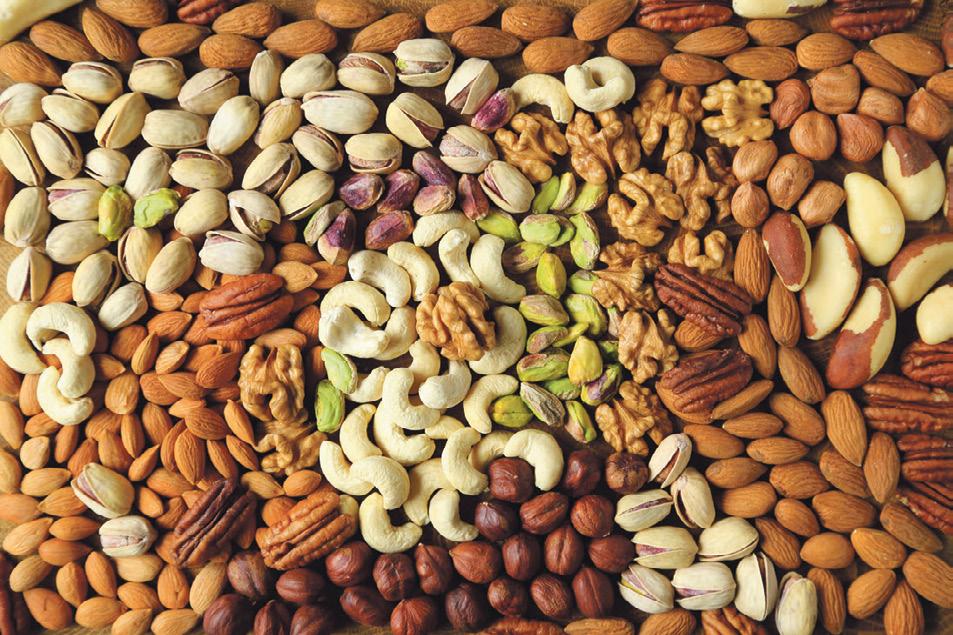

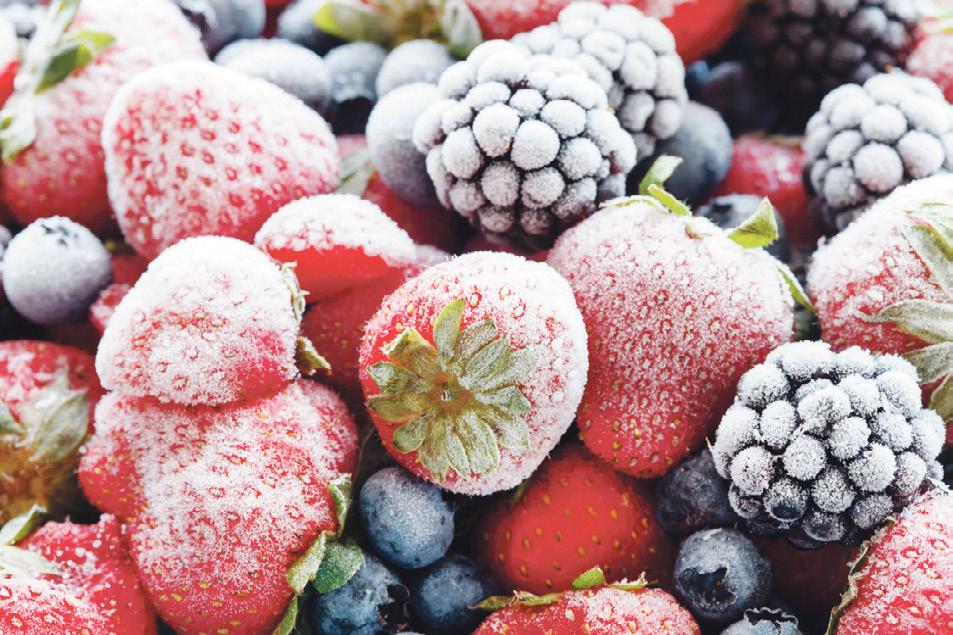
The Product Environmental Footprint (PEF) is a methodology that aims to evaluate the environmental impact of a certain product, food, and non-food. This tool is based on a life cycle analysis (LCA) and the European Commission has been developing it for about 10 years.

The PEF was not meant to reflect the reality of complex agri-food systems in a holistic way. While the product-focused PEF serves well to compare manufactured industrial goods, the approach significantly lags when evaluating the environmental performance of complex agricultural systems, including natural fibre production, in a holistic way.
When applied to food, the PEF gives misleading results, since the
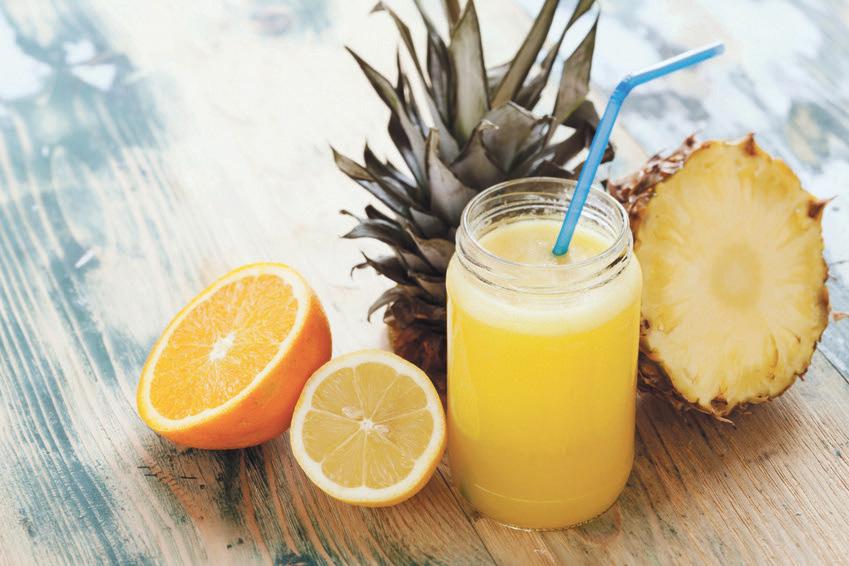
more extensive the agricultural practice is, the worse it scores, evaluating products as an indicator of yields. For instance, eggs from hens in cages score better than free range eggs, which in turn score better than organic eggs. The same logic applies to agriculturally derived natural products, such as cotton, wool, hemp, jute, kenaf, and flax.
The reason for this bias is the PEF’s inability to consider some key
externalities, negative or positive, of different production methods on biodiversity and the use of inputs such as pesticides. Besides, environmental scores based on PEF are unable to distinguish between two products of the same category – they mostly highlight that meat and dairy products have a worse impact than fruits and vegetables. IFOAM Organics Europe has summarized this and other concerns about the PEF in its position paper and in its technical brief-
www.organicseurope.bio/content/uploads/2022/09/IFOAMEU_policy_position-paper_sustainability-labelling_202209.pdf?dd
www.organicseurope.bio/what-we-do/food-policy
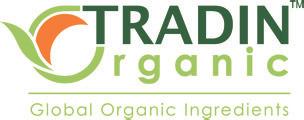
ing that highlights the limitations of its methodology.
There are other existing initiatives that go beyond life cycle analysis (LCA) that also support the agroecological transition, in line with the Farm to Fork strategy objectives. An example of one of these initiatives is the PlanetScore which was developed in France through a partnership between researchers, the organic movement and civil society, and is currently being tested by many brands and retailers, both organic and conventional, in several Member States. While the PlanetScore is still a work in progress, it more accurately evaluates the true environmental impact of food products compared to other existing methodologies, as it better considers externalities such as biodiversity, use of pesticides and animal welfare.
Almost everyone agrees that greenwashing is a problem. So, in theory, having a universal methodology for substantiating environmental claims across the whole of the EU ought to draw wide support. But what if the design of that model was so flawed that it actually penalised environmental high-performers like organic?

That is a real prospect if the European Commission adopts an unmodified version of the controversial Product Environmental Footprint (PEF) method as the basis for substantiating all future environmental product claims across the Union.
Campaigners warn that the PEF contains serious ‘blind spots’ – ignoring impacts on biodiversity and pesticide use, for example – meaning that its scoring system often favours intensive farming and penalises organic.
Last year, 14 NGOs warned the Commission that the PEF effectively legitimises greenwashing. They cited
examples of how the PEF model gives distorted accounts of environmental impacts. For instance, eggs from caged hens score better than free-range eggs, which in turn score better than organic eggs. All apples get a green ‘A’ ranking under the PEF, regardless of the growing system, while all beef and lamb receives a red ‘F’ ranking, however it is reared and processed.
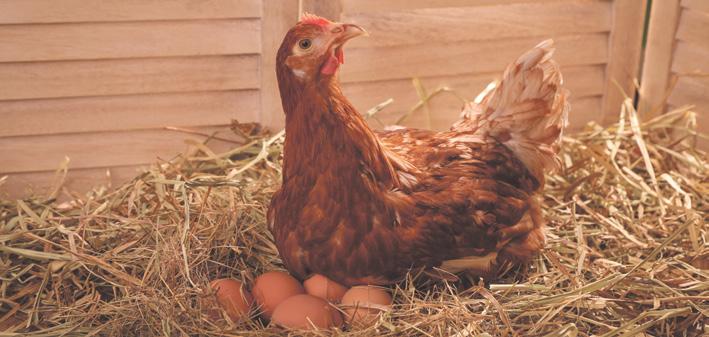
As concern over the PEF’s shortcomings deepens, support is growing
for the Planet-score scheme, a ‘planet boundaries’ based approach that produces a more holistic picture of environmental impacts.
The Planet-score label is designed to be easily understood by consumers and features an overall Planet-score, an A-E grading of performance on Pesticides, Biodiversity and Climate impacts and a separate animal welfare score. As Sabine Bonnot, president of the French Institute for Organic Food
and Farming, says: “A big worry is that the wrong metrics may lead to a serious mistake in the transition to more sustainable food systems. PEF simply does not tell the whole story about farming. Planet-score offers a nuanced, complete picture, rather than a path to a simplistic letter score.”
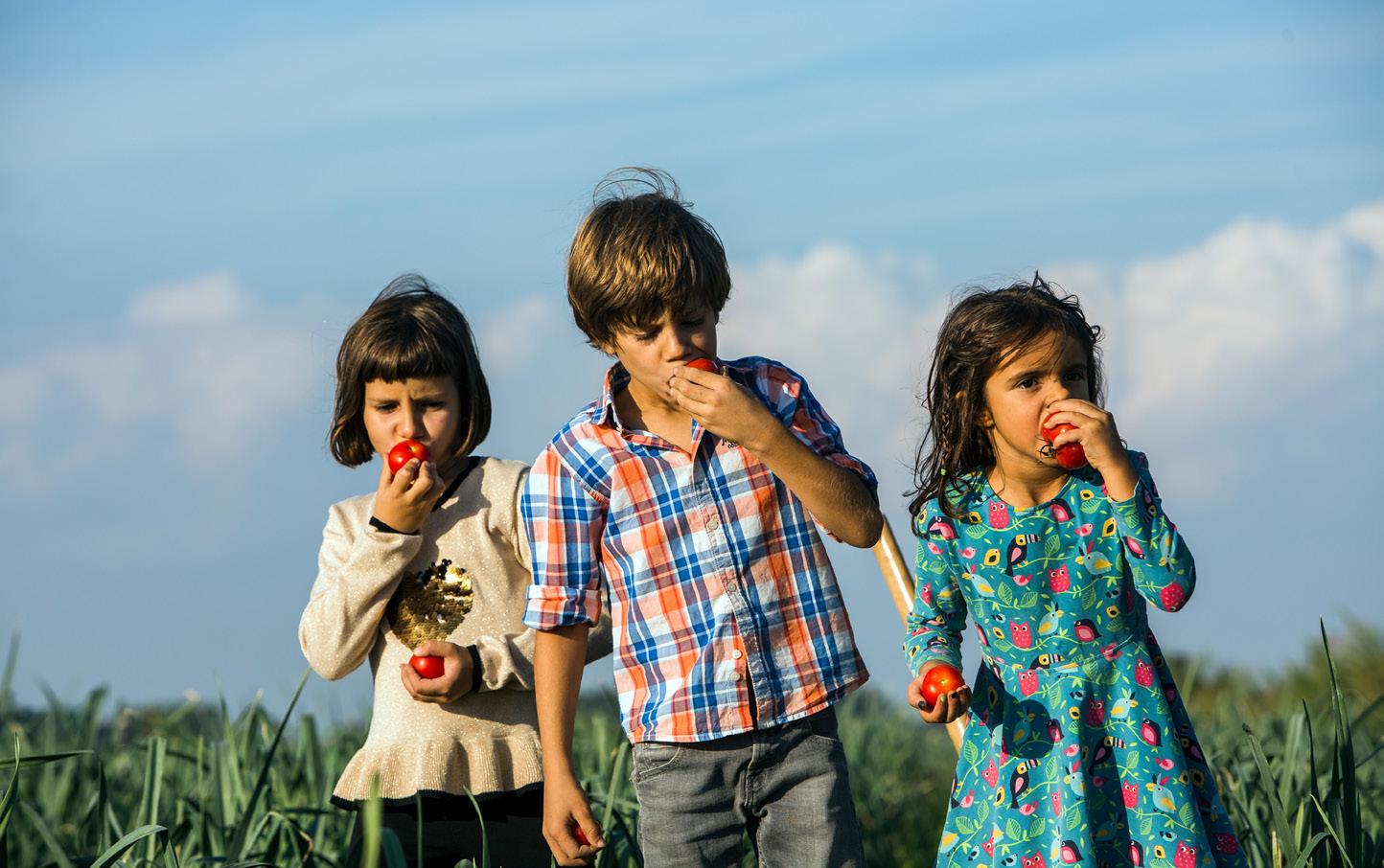
By autumn 2022, Planet-score was already working with 180 companies across 20,000 products in 11 countries. Significantly, it has attracted the interest and support of major European retailers.
Planet-score also took the 1st prize in the Retail For Good (2022) initiative, and has scored highly in consumer research.
Sabine Bonnot believes that whichever direction the European Commission takes with the PEF, Planet-score now has sufficient momentum to lead the way for holistic eco-labelling in Europe.

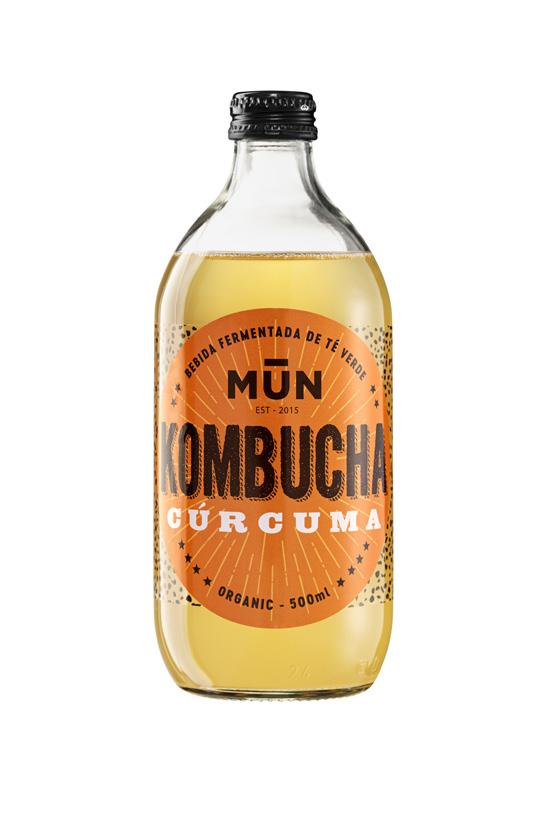
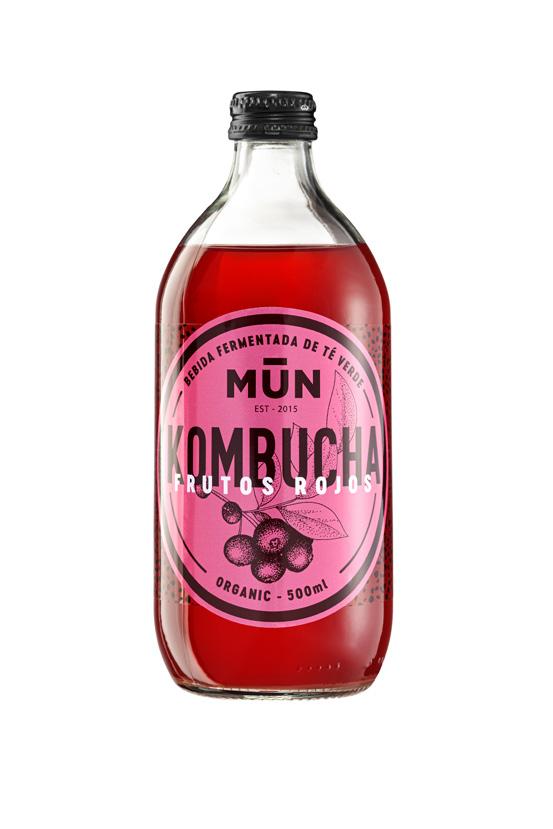


OPTA Europe is an association with permanent headquarters in Brussels, uniting companies and associations with a large experience in the areas of organic processing and trade from across the EU and key non-EU partner countries. OPTA Europe’s mission is to defend the interest of members in all EU areas related to organic processing and trade. Through our advocacy activities, we aim at contributing to a food and farming system where organic is the norm. Information on our 2023 agenda follows.
Implementation of the new organic regulation: A brand new organic regulation has applied since 2022. We will monitor implementation and will submit our ideas on the secondary legislation to come, as well as on updates of the rules for processed food.
Sustainable Food Systems: A legislative framework for a Union Sustainable Food System will be pro-
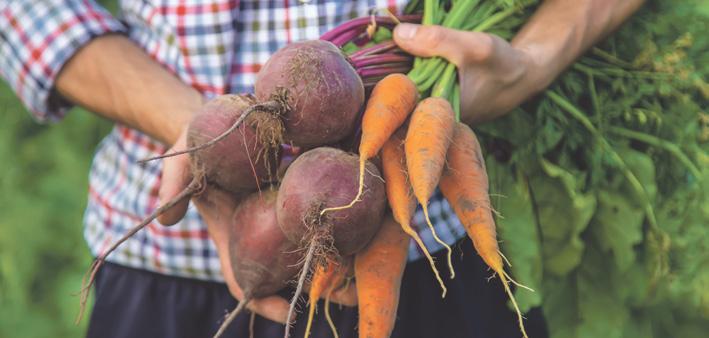
posed by the European Commission in 2023. Depending on how ‘sustainable food’ is defined and measured, this policy may bring new opportunities but also enormous challenges for organic companies.
Nutrition labelling: An EU proposal to introduce standardized mandatory front-of-pack nutrition labelling is expected soon. OPTA Europe will de-
fend a nutritional measurement that takes into account the main benefits of organic processing, namely the preservation of the true nature of the product.

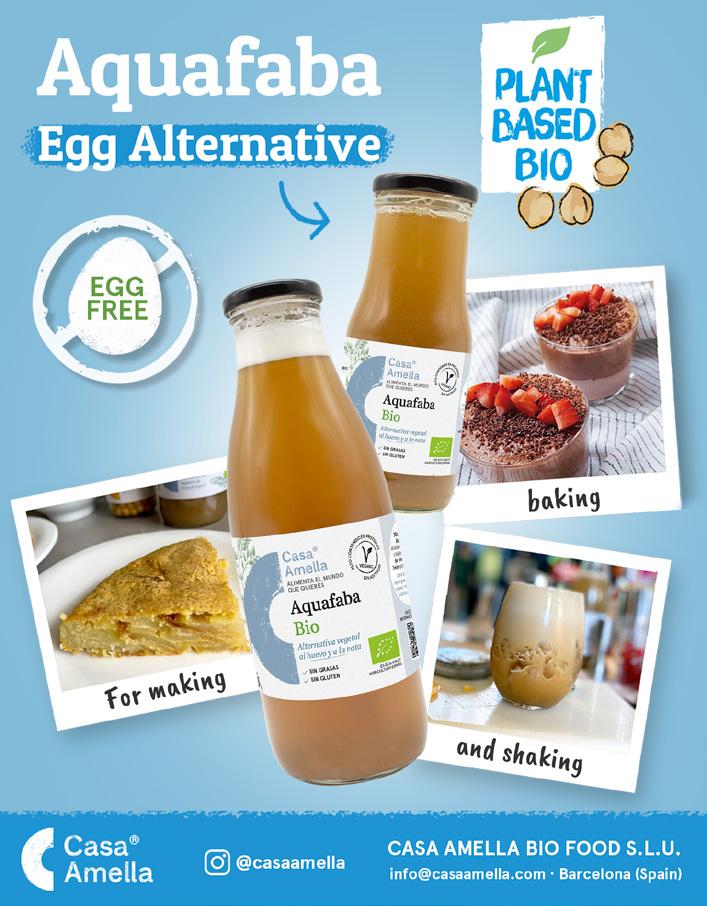
Trade and international Agreements on Organic Equivalence: The European Union is renegotiating organic equivalence agreements with 11 countries. These negotiations are a
tremendous opportunity to increase the trade in organics and to make life easier for importers and exporters. For example, by ensuring reciprocal access to export markets and by moving towards convergence of organic standards, which eliminates the need to meet multiple standards and certifications to trade organic products in different markets.
Benefits of becoming a member of OPTA: You will get your voice heard by helping to shape OPTA’s positions on European initiatives impacting your core activity, get access to a well established network of key professionals and players in the EU organic supply chain, increase your company’s potential through analysis and intelligence gathering on current and planned policy initiatives, have direct access to, and exchanges with, European policymakers and leading EU-level players through OPTA events and meetings.


The Spanish Federation of Food and Beverage Industries (FIAB) has represented the Spanish food and beverage industry, the leading industrial sector in the country with almost half a million workers and close to 30,000 companies, since its origins in 1977.
Within the work areas of the internationalization department of the Federation, several initiatives related to promotion are carried out. In particular, promotional activities are organized to promote the export of Spanish organic food and beverages. During the year 2022, these actions have been the following:
• Collaboration in the organization of Organic Markets & Trends at Alimentaria Barcelona, a space in which the offer of organic products of the exhibits was grouped and which had more than 130 companies and more than 150 products on display.
• With the support of the Ministry of Agriculture, Fisheries and Food, since 2019 it has organized the Spanish grouped pavilion at the Biofach fair. In this 2023 edition it enjoys the collaboration of the Institute for Foreign Promotion of Castilla-La Mancha (IPEX) and the Government of Navarra.
• Organization of business meetings with international buyers at the Organic Food Iberia fair. Some 130 business meetings were held in which about 20 international buyers and 50 exporting companies of organic products participated.
• Organization for the first time of the Spanish pavilions grouped at the Natexpo Lyon and Nordic Organic fairs.
For BIOFACH 2023, a total of 13 companies participate through FIAB
Find us at Hall 4 and 5 Booths 4-553, 4-561 and 5-259
in the joint Spanish pavilion: Agrosevilla (olives and oils), Bras del Port Eco (seasonings), Congelados de Navarra (frozen food), Hudisa (concentrates and frozen fruit), Interal S.A. (rice, pasta and cereals), Mueloliva y Minerva, S.L. (oils), and Virto Group (frozen food).
In addition, FIAB also coordinates the group of organic product exporters: Biofoods from Spain. It is made up of 15 Spanish companies with a
strong export vocation. A representation of this group will be present at Stand 4-561 of the Spanish grouped pavilion in the 2023 edition of Biofach, the participating companies being: Autor Foods (legumes and canned vegetables), Bioterra (dried fruits); Embutidos La Hoguera (processed meats); HIDA (vegetable sauces and canned tomato); Mieles Anta (honeys); and Pharmadus (teas and infusions).
Spain is one of the main organic producers by area both in the European Union and in the world, and more and more companies in the Spanish food and beverage industry are offering new organic products that complement and expand their production lines. International markets are essential for the growth and development of Spanish companies and organic production is an additional opportunity to continue offering innovative, safe and quality products.
GROUP
www.virto.es

Spain is one of the main organic producers by area both in the European Union and in the world
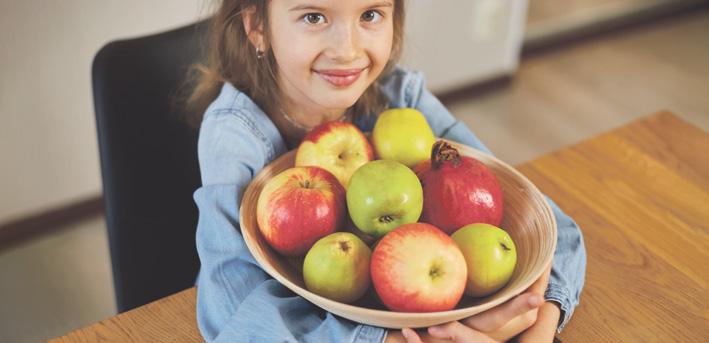

When I started in 1987 in the organic sector it took only some months to understand that healthy organic agriculture and food was necessary for the benefit of our common nature and individual health. With this internalized purpose it was not difficult to work joyfully on promoting organic through the decades of my working career. With the constant growth of the organic market and the attention for the need to transfer to organic agriculture, one can become easily satisfied. On the contrary, as time passed by, I have become less optimistic for our common future. Of course, I also believed that the Farm to Fork strategy, with its aim of 25% organic, would be a game changer. And True Pricing would show that inclusive organic is far more profitable for society as a whole than the chemical agro-industrial production, with its massive externalised costs.

Again, I miscalculated the extreme power and aggressiveness of the conventional agro-food industry. After the






successful organic years during the Covid pandemic, we encountered the war in Ukraine and the effects on prices for energy and food. The conventional industry embraced the war as a gift and demanded a stop to the sustainability efforts of the F2F strategy in the name of food security. A misleading report, financed by the industrial multinationals, claimed that the transfer to sustainable organic production would lead to lower yields and higher prices. At the same time, they launched their
perspective on sustainable agriculture with the stolen word “regenerative”: a bit more crop-rotation, a bit less chemical fertilizer and pesticide. In one word: green-washing, but nonetheless a serious attempt to steal the 20% CAP budget for Eco-scheme support. Coincidence or not, the problem of residues caused by the excessive use in industrial farming is transferred to organic: we have to prove with 100% certainty the cause of the residue when it occurs in organic. That’s a lot of work, money
and insecurity when we have to bear with an average of 15-20% residue findings in all analyses of organic, mainly caused by conventional farming.

And in the meantime, the actions by governments to support organic are delayed and delayed, or lack budget and ambition. As I see how conventional farmers and food multinationals in The Netherlands were for decades able to postpone necessary measures to change their food and farming system, I realize we as the organic sector have been much too polite. Successful climate activists like Extinction Rebellion, MOB and Greenpeace show us how to create urgency around the climate crisis and our survival on this beautiful planet. We have to continue our important work day in, day out to produce organic food, but should also speak out loudly to governments and society to insist that the polluter must pay (instead of grabbing the CAP money and other subsidies), and that organic should be comprehensively supported for the sake of our children.

“Regenerative” has momentum. New partnerships, organizations, finance tools and certifications pop up daily. Those of us who have been working to promote regenerative organic practices for decades — including the organic pioneers at Rodale Institute who coined the term “regenerative agriculture” in the 80s — can rejoice. All newcomers focusing on soil regeneration, biodiversity and climate: Welcome!
But let’s distinguish between serious regenerative actors, like farmer allies working for practices and policies similar to those we work for in IFOAM... and those like Syngenta, where the ill-defined “Regen Ag” allows Syngenta to re-brand itself as a “regenerative” champion while continuing with pesticides as core business.
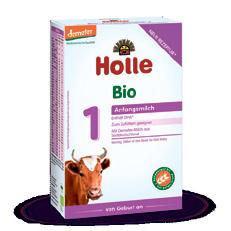
Regenerative momentum is partly explained by this attractive, easily exploited ambiguity. Claiming regen-
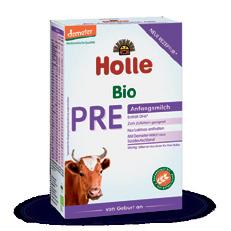

erative goals and practices also helps delay the more ambitious political steps needed to address crises in food security, climate and loss of biodiversity. Regeneration also just feels right. The craftsmanship appeals to farmers. And Hollywood has made soil sexy. Respect. Let us be inspired by the soil and landscape aesthetic in regen PR. We need to communicate with more heart about what we fight FOR in organics!
We must also call out greenwashing. And the repeated false claims of regen being “beyond organic”. It’s not. These claims are always based on comparisons between regenerative ASPIRATIONS (maximum goals) and organic guarantees (minimum standards). All regenerative aspirations are already firmly embedded in the international organic principles in IFOAM. Of course, our unique global infrastructure of standards and certification gives consumers a real guarantee, not available from “regenerative”. Despite this, the

regenerative idea is competing for the “sustainable alternative” space among food companies, retailers, philanthropists and policy makers.
There is real risk that leading corporate, NGO and philanthropic interests set an attractive but diffuse “regenerative” agenda drawing policy, farmers, funding streams and market focus away from the real food systems change that organics and agroecology represent.
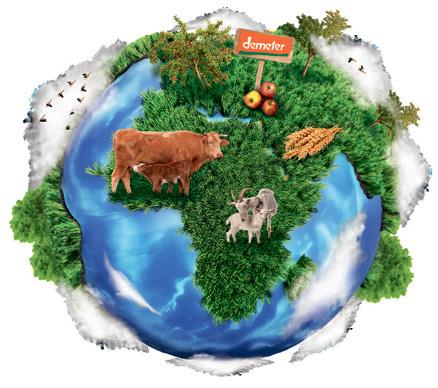
To recapture momentum Regenerative Organic Certification was launched in the US, building additional social, climate and animal welfare steps on USDA organic standards. Companies like Tradin’ Organic are already selling certified regenerative organic products.
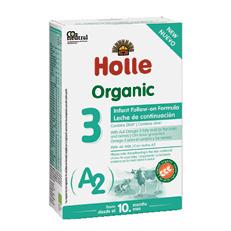
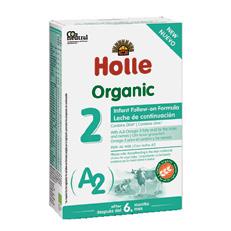
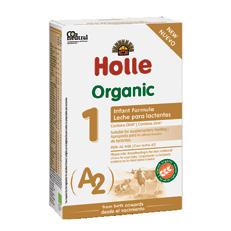
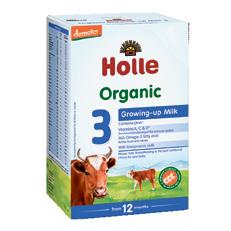
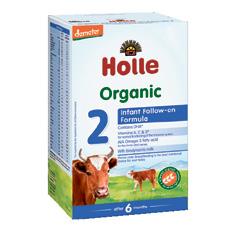
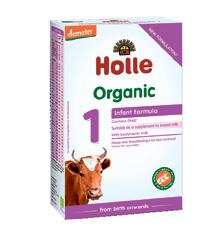
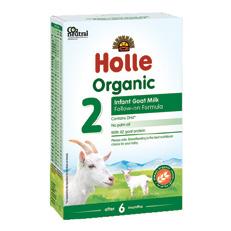
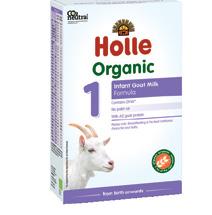
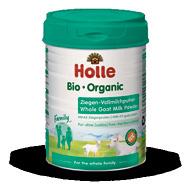
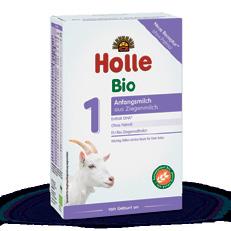
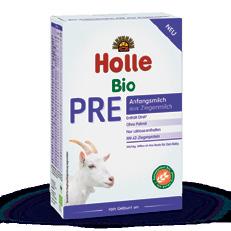
From the organic sector we will seek collaboration with serious regenerative actors, on shared goals for farming and policy, call out “regenerative” greenwashing, position organic further in the market, advocate for organic standards as a minimum guarantee for regenerative claims in the market, intensify development in organics for climate and fairness in supply chains, draw inspiration from new outcome-based tools for farmers, and communicate with heart!
We can set an offensive organic regenerative agenda together!
the requirements specified by statutory organic standards. Nine years ago we began making our milk products climate-neutral. Now we are going a step further by making them climate-positive.

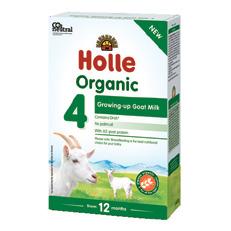
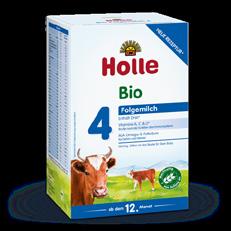
We must also call out greenwashing. And the repeated false claims of regen being “beyond organic”. It’s not
Fausto Jori is the Chief Executive Officer of EcorNaturaSì, the leading organic food retail chain in Italy. Set up in Verona in 1992, the company has 350 points of sale distributed all over Italy. In 2009, the merger of Ecor (the largest wholesale distributor in the organic and biodynamic sector) and NaturaSì led to the creation of EcorNaturaSì, which now controls the chain of production, distribution and marketing in Italy through its network of specialised shops.
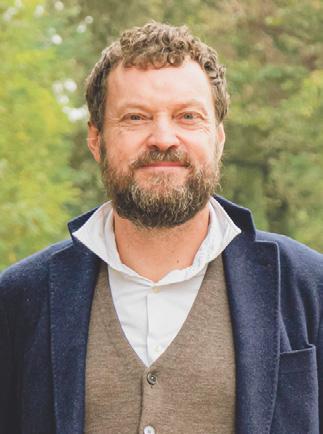
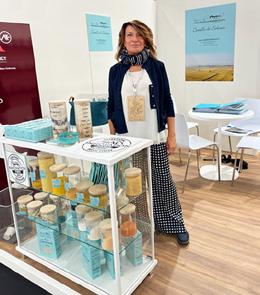
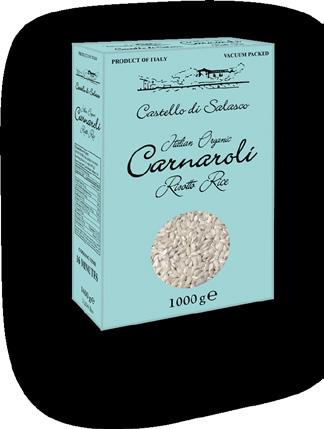

What can you tell us about the current situation in Italy?
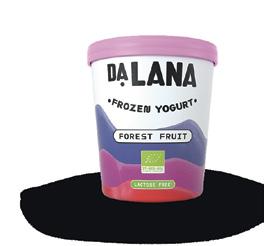
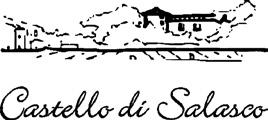
It’s a tough situation, pretty similar to the situation in Germany, France, and Spain. The organic market is declining by around 10% compared to last year. We believe that is not related to the organic market itself but to cost of living pressures. Consumers are in a very difficult situation because there is no clear future for anybody. Energy costs, raw materials... Everything makes it very difficult to predict even the next few months. People are scared and trying to save money.
Beyond the short-term challenges, are you hopeful about longterm prospects?

We are sure that the organic movement will not have problems in the future, because this is a road everybody has to follow. We are not perfect and we have to improve a lot,


but we believe that we, as a pioneer, have to go in this direction. Obviously, the next 6-12 months will be difficult for liquidity reasons, for market reasons, for supply chain reasons, so we will have to try to hold firm as much as possible. And probably we will have to make some compromises, tactical compromises, but with a clear goal in mind. I believe that the organic movement in Europe has to add a new concept: efficiency

What is key in order to achieve this efficiency?
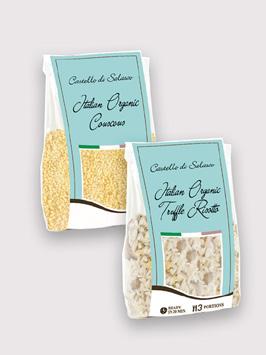

Increasing efficiency in agriculture is a major challenge; it’s not go-
ing to be easy. You can increase yields, but you have to invest in research and in processes. This is something that has not been a strength historically in the organic movement. It was more focused on the relation to people, to the idea. Today we understand that we have to combine ideals with efficiency.
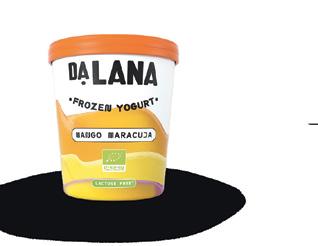
You have a US background. Is NaturaSì looking to launch in the US?

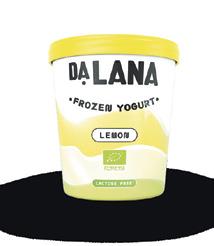

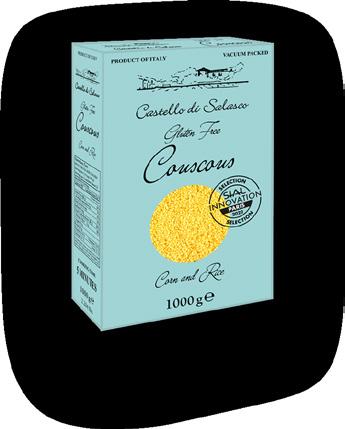

Eventually, with raw materials. Our goal is to protect the agriculture ecosystem we founded in the last 40 years. We have farmers and 10,000 hectares of organic or biodynamic crops. We believe that provides benefits for everybody. Exporting raw materials internationally could bring benefits to both consumers, and the farmers and growers who have invested time and energy to produce high quality products by working with nature.
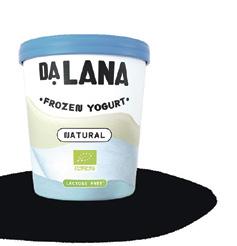
“We have to combine ideals with the efficiency”
Oriol Urrutia, Bio Eco Actual Co-Editor comunicacion@bioecoactual.com
What do you feel when thinking about mature EU organic markets, like Switzerland, France, Germany or Denmark?
Every market has its own features. The Swiss market is very well developed, but there are some production challenges. So, being able to form a strong relationship with farmers is an important objective for the Swiss market. In France, the cooperative Biocoop is an impressive performer and an interesting model in Europe, due to its strong connection and engagement with farmers. While the German organic market is a mature one, it is suffering a lot right now. In my opinion, getting through this difficult period will require a clear vision of the future, and adhering to the ideals of the organic movement: healthy agriculture, healthy food and healthy economy. If we keep focused on the road ahead and our organic goals, then the world will travel with us.
What is your sense of the Spanish organic market?
My understanding is that while
there are a lot of strong organic farmers and producers, there is not such strong connection between retail and agriculture in the Spanish market. My sense is that there should be more focus on connecting up farming and retail. Building a strong relationship between these groups should be an important priority.
The dream of a farmer is to plan the future. It takes one year to get bread: you have to have seeds, put them in the soil, manage the soil,
and after one year, you get the bread or the pasta. If the consumer is able to understand this long process, it is much easier to help farming. And that also translates into business revenue.
The retailer has a role that goes far beyond just being a commercial component of the value chain. The retailer has a key role in food and farming culture, and in educating consumers about the role and function of farming and the environment. It’s not just about selling products.
Can NaturaSì actively play a role in the Spanish organic market?
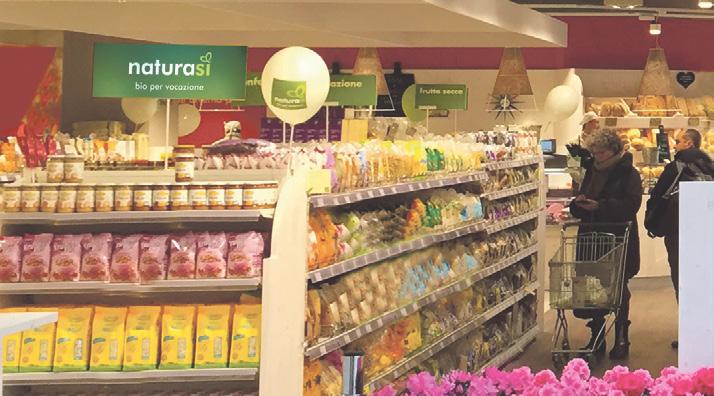

Our goal is to be a pioneer, having a clear idea of the future and going in that direction. It’s not easy to do, it’s challenging and costly. Spain has to think of a new future for specialized stores. I believe that NaturaSì can be an inspirational model. We already have two stores in Madrid, for historical reasons. And we have Biotobio Ibérica as our distributor. We believe that the market model we have in Italy could be also interesting for Spain, due to their similarity. We want to help Spain move in that direction. We are ready to share the best practices we also operate in the Spanish market.
To date, our strategy is to focus attention on the Italian market because the situation is complex and demanding. We want to maintain some initiatives across Europe but with no consolidation objectives. We are happy to have a small presence here and there, mainly to demonstrate a shared vision for the future. Because organic is something much more than just a business”
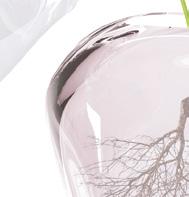
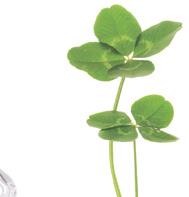
The benefits of organic production for the environment and people’s health deserve higher awareness and recognition. Organic production appeals to new farmers because it bears meaning and holds potential for future generations: 30% more biodiversity, no water treatment necessary, new jobs (the 13% of organic farms provide 19% of jobs in farming).
In 2021, France became the leading European country for organic agriculture, with 2.8 million hectares devoted to it and self-sufficiency in organic milk, eggs and – for the first time in 2021 – organic grain. This leadership in Europe is not just valid in farming: it translates into the country’s position as the second biggest market in Europe behind Germany, and in terms of consumption –excluding tropical products – 80% of organic produce is sourced on French land (1).
Despite French consumers beginning to explore other forms of responsible consumption, the organic label remains the reference in the food transition and a source of reassurance: 9 in 10 French people consume organic products.
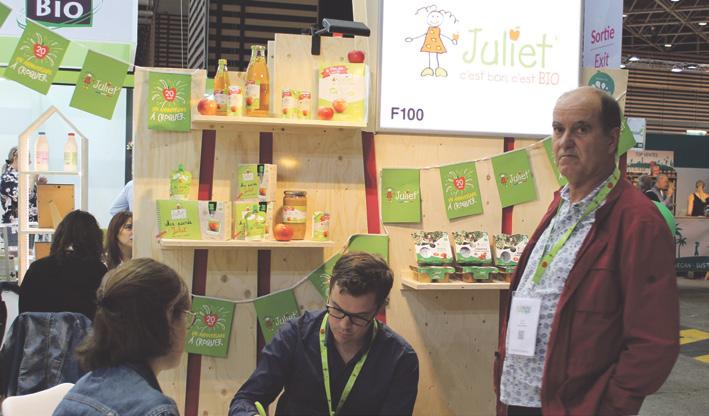
An increasing percentage have become more regular organic consumers, whether once a month (76% vs 73% in 2020) or at least once a week (52% vs 47%). And 12% say they want to increase their consumption in the future.
The primary reason for consuming organic is still to protect health (27%) followed by protecting the environment (13%). Furthermore, the French see organic as synonymous with enjoyment, since taste is the main purchasing criterion for organic products (important for 95% of French consumers).
In addition, the French have high expectations with regard to out of-


home offerings, in particular school catering (82%), workplace catering
(75%) and conventional food service (74%). Nearly one French person in eight says they have heard of organic food in a restaurant, even though restaurateurs only use 2% of organic products in their menus. This is evidence that there is a long way to go in this channel to ensure it plays a full role as a growth lever and showcase for organic in France.
According to a substantial majority of French people, organic is a sector of the future: apart from seeing organic as contributing to protect the environment (87%) boosting biodiversity and delivering health benefits (82%), the French increasingly believe that organic farming is a source of employment in the country (76%).
Inflation, exacerbated by Covid and the war in Ukraine, has hit households hard, who have cut their spending substantially as a result.
Following several years of strong growth, the organic market has not been spared, recording a 1.3% drop (68 million euros), but still nevertheless accounting for 6.63% of the French population’s food shopping.
These figures do not however reflect a global view of the market, since
Following several years of strong growth, the organic market has recorded a 1.3% drop, but still nevertheless accounting for 6.63% of the French population’s food shopping
organic products have the particularity of being sold in a wide range of outlets, including specialist retail (3,000 points of sale / 27%) and direct selling (26,000 points of sale / 1 in 2 farms).(1)
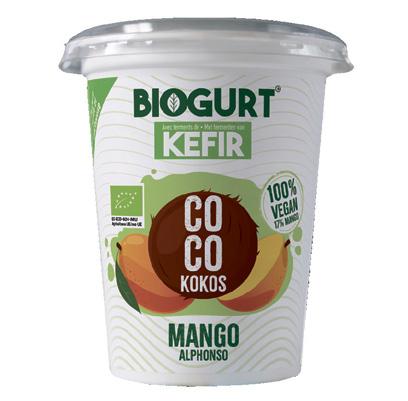

In parallel, the sales of organic products in supermarkets declined for two years running (69% in 2021 as against 74% in 2020 and 77% in 2019) to the benefit of local markets (35% in 2021 compared with 26% in 2020) and purchases made directly from the producer (31% as against 25% in 2020) (2)
In total, organic revenue grew by 0.9% in cumulative year-to-date terms over the past ten months. Mass and specialist retail, direct selling, producers: all these diverse retail channels contribute to the resilience of the organic sector (3)
While there have been two to three times more shop closures in 2022 than in 2020 and 2021, specialist shops are continuing nonetheless to open at a healthy rate, with an anticipated landing zone of around 140 new shops at the end of the year. Closer analysis of the breakdown of closures indicated that half of these are old shops that may have experienced difficulties in adapting to market change (digital, services, innovations) while the other half are more recent shops that encountered serious cashflow problems.
Furthermore, disparities between geographic zones beg the question as to whether some regions have reached saturation point. At the end
of 2021, there were 6 organic shops per 100,000 inhabitants in the southern half of France, compared with 4.1 shops in the north. The growth of the organic market will probably result from higher quality territorial coverage, with shops opening in hitherto non-saturated catchment areas.
2022 has been a difficult year, and the organic sector has not escaped the trend, but a bright future still lies ahead, as long as the right decisions are made.
Natexpo, the leading international event in the organic sector in France, will offer an opportunity to get up to date on all the new market expectations, bringing together all the stakeholders in the sector in the same place.
Make a date for 22 to 24 October 2023 at à Paris Nord Villepinte, Hall 6, to meet 1,250 French and foreign exhibitors dedicated to organic, but also durability, eco-responsibility, loose and bulk goods, vegan, local sourcing and CSR: all trends at the heart of consumer expectations today.
18,000 trade visitors are expected to attend these three days of meetings and business. They will have the opportunity to contribute to this new elan in the organic sector and get up to speed on the sector’s burning topics through 200 talks and round tables, presented by organic market specialists. www.natexpo.com
1. Agence Bio
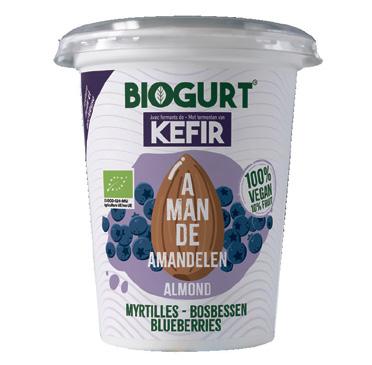


2. Barometer on consumption and perception of organic products–Agence BIO/Institut CSA
3. Bio Linéaires
Natexpo, the leading international event in the organic sector in France, will offer an opportunity to get up to date on all the new market expectations

The COVID-19 pandemic hit us all hard but gave many people the opportunity to rediscover and reconnect with local and organic food during lockdown. I am sure many in your surroundings also learned to make their own bread or desserts and spent a lot more time in the kitchen and at the table. Whilst the global pandemic showed us many vulnerabilities in our communities, care systems and the food system, it was remarkable that European organic sales increased manifold.
However, as the end of the pandemic came into sight, a war in Europe broke loose, following Russia’s aggression in Ukraine. Rising fossil-fuel prices heavily impacted the food system, showing its reliance on synthetic pesticides and fertilisers. Coupled with economic speculation, this led to an economic crisis with a heavy inflation rate, increasing energy and food prices and increasingly struggling households that must prioritise their spending.
While it is remarkable that it is mainly the prices of conventional food that are rising, the current economic crisis translated into a sharp decrease in organic sales in several countries –less sharp but still present compared to 2019. This resulted in organic shops across the continent having to close. Strong policies favouring organic supply and demand, as the EU Organic Action Plan puts forward, can be a stimulus for organic producers and consumers. For example, in national
organic action plans, the targets for organic should be realistic but ambitious and have the required financial aid coupled to them.
Unfortunately, the organic sector often faces policies doing the opposite. There is a high number of labels for products, such as HVE (High Environmental Value) in France, but also industry-led “regenerative” schemes. Many of these labels try to do what the EU organic label is already do-
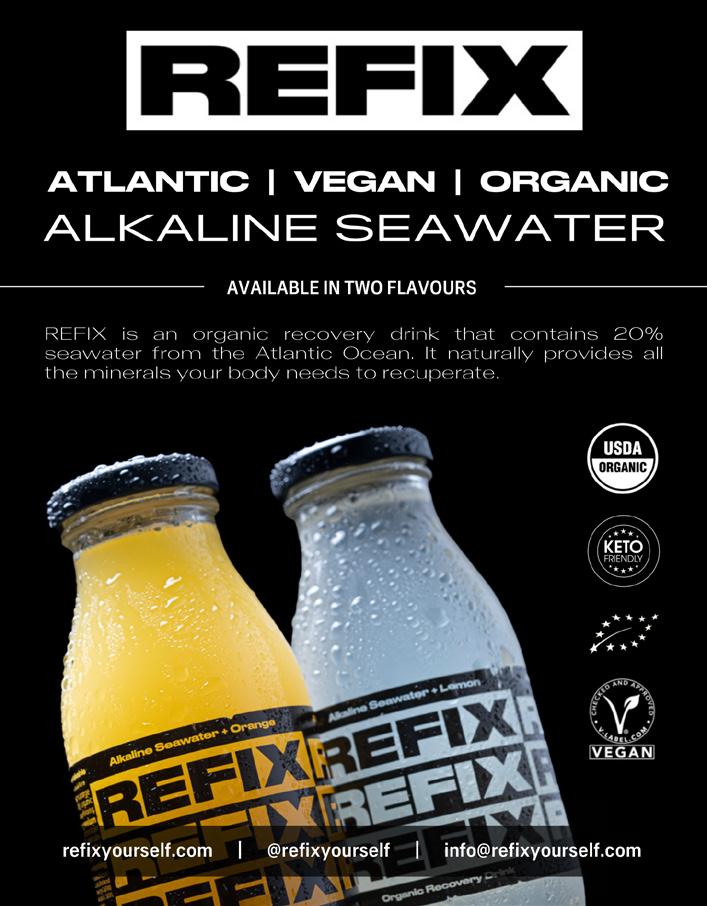
ing: providing a guarantee for truly sustainable practices. The EU should ensure the different initiatives are not competing, and prevent greenwashing and help avoid misleading advertising using labels that favour large-scale and “efficient” processes using monocultures, synthetic pesticides and fertilisers.
Labels should also set high standards for environmentally friendly products and encourage consumers to buy products that actually deliver for biodiversity, water, air and soil quality. Moreover, the budget for promotion policies for organic should remain ambitious, so consumers continue to see and be nudged towards organic products.
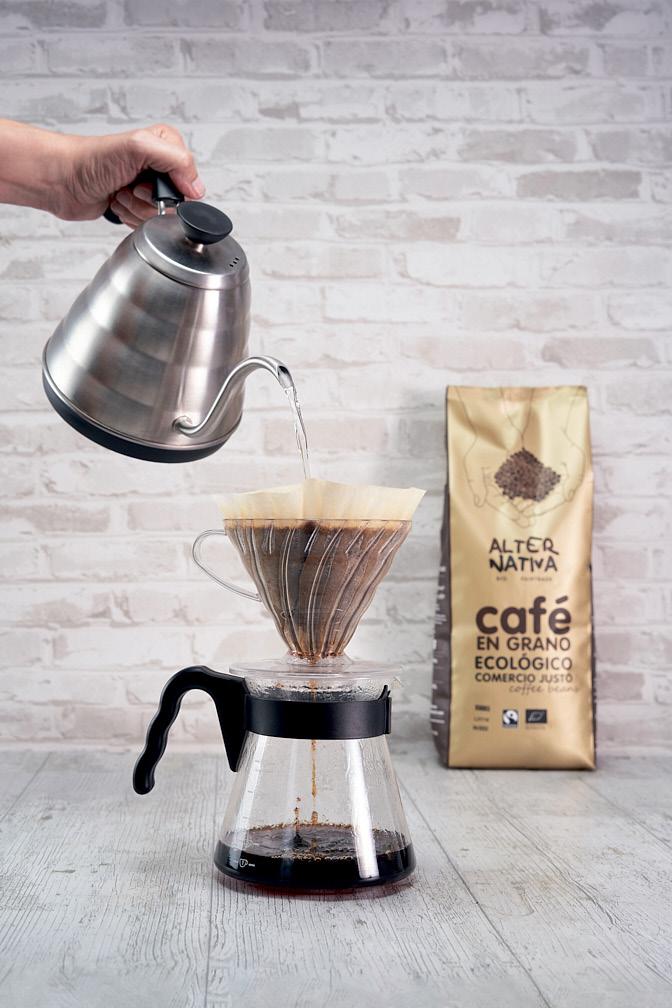
Last but not least, the EU should set minimum criteria for organic in sustainable public procurement. This would boost demand for organic, bringing organic’s benefits to the plates of public canteens at schools, hospitals and civic buildings.



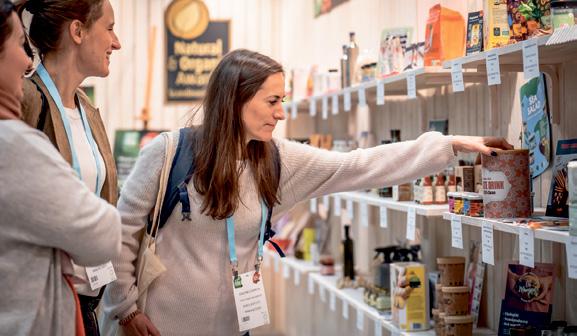
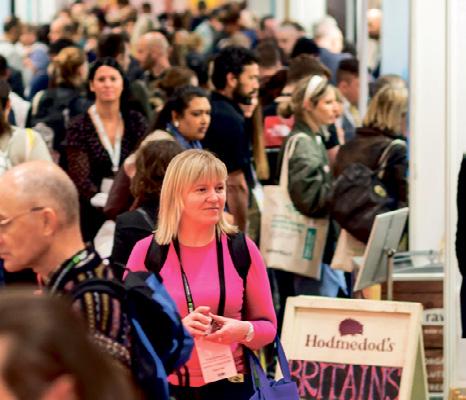
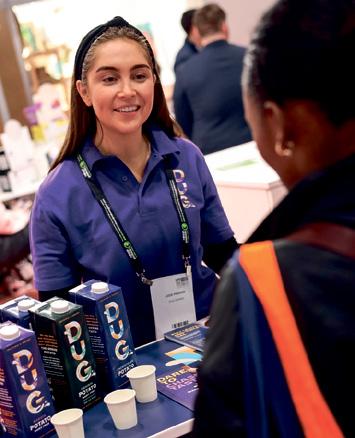


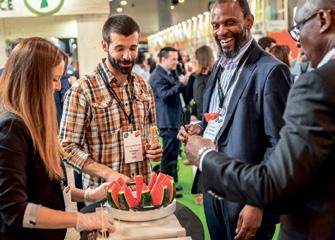
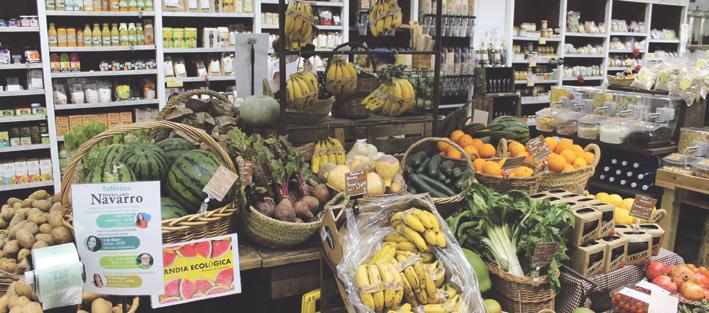










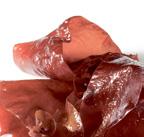










A transformation of the food system is urgently needed in order not to exceed the Earth’s carrying capacity, and supermarkets are important partners if our food system is to be changed in the direction of sustainability. They have a responsibility to minimise the negative impact of their actions on the environment, for example with product range design and procurement policies. A study by FiBL Switzerland commissioned by the German Federal Environment Agency (UBA) shows that supermarkets have so far made insufficient use of their scope for action to make the food system more environmentally friendly. The study evaluates and compares the environmental performance of the eight companies with the highest turnover in the food retail sector in Germany (Aldi Nord, Aldi Süd, Edeka, Kaufland, Lidl, Netto Markendiscount, Penny, Rewe), and reveals that they have so far not used their room for manoeuvre to achieve real sustainability.
Especially in the areas of product range, design and consumer awareness, companies do not use their scope for action at all or only insufficiently. Advertising for environmentally friendly products is proportionally underrepresented in all supermarkets surveyed. In weekly brochures, foods certified with sustainability labels account for just under 7 per cent of the food products advertised.

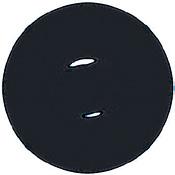
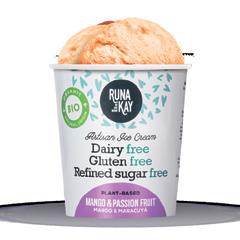

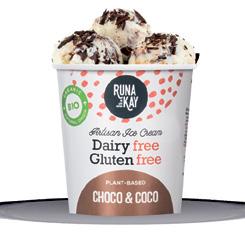


On the other hand, supermarkets are making efforts in individual areas to reduce their negative environmental impacts. The companies score rather well in reporting on environmental targets as well as on energy efficiency improvements in the shops and production facilities. They also score well on environmental campaigns and
awareness-raising measures, as well as on setting science-based climate targets or targets for deforestation-free supply chains. Other positive examples are actions and campaigns to reduce food waste, especially in the area of fruit and vegetables; the large offer of organic food (62 per cent of organic food sales are achieved in conventional food retail) and numerous pilot projects on climate and environmental protection, such as the presentation of environmental costs in sales prices, and the increasing offer of plant-based alternative products.
For the study, FiBL developed a science-based assessment tool consisting of 22 fields of action, 43 indicators, and 112 sub-indicators, which will be available in the future for a regular comparison of the environmental performance of food companies.




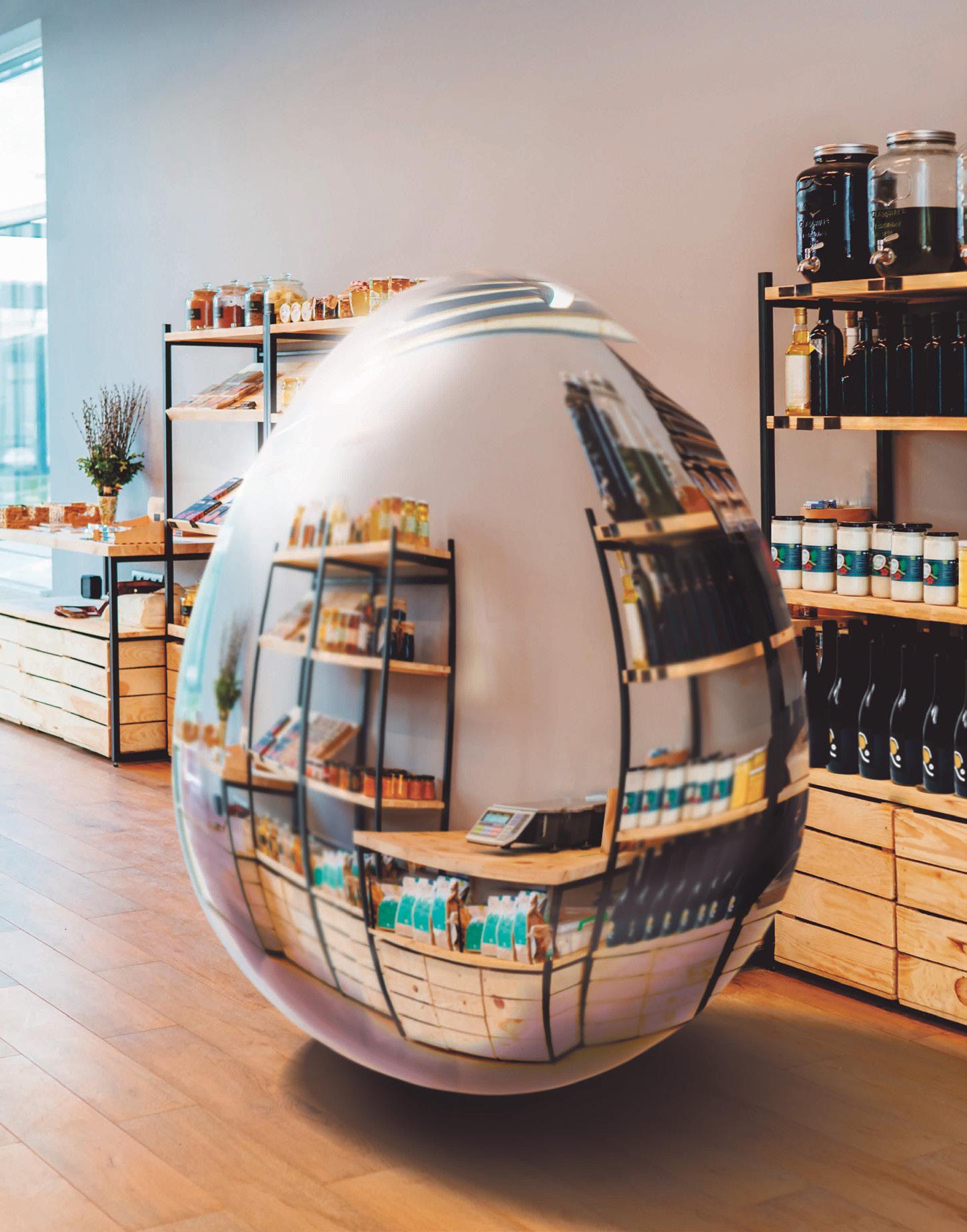

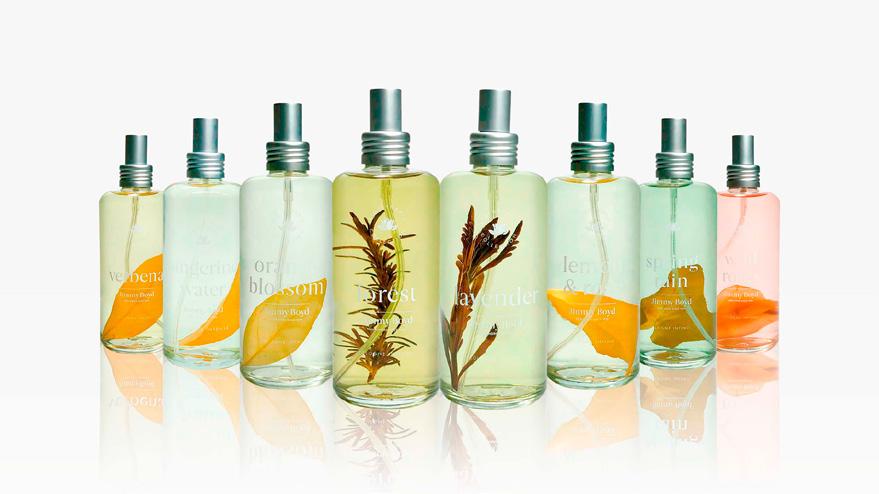

The holistic concept of organic presents solutions for many current challenges and contributes to the SDGs. That makes it interesting for international development cooperation. A quick review of recent history and the present priorities showcased in the Africa Pavilion, (e.g. at the KOAN booth), follows.
In 2011, a small break-out session of the Organic World Congress (OWC) in South Korea positions organic as an innovative development concept for poverty alleviation, resilience building, and sustainable development. “Nice but crazy since no funding will follow”, was the then feedback of experts. Critics said that organic is for advanced farmers that can access sophisticated certification services, and that have wealthy clients; preconditions, which are not available in low-income countries. In the meantime, millions of Euros flow to devel-
Early projects concentrated on certification and trade. Later, broad view sector development, system performance measurement and nutrition projects were in the foreground. In 2014, the African Union launched the continental “Ecological Organic Agriculture Initiative” (EOA-I)
ganic in Africa, which is supported by the Swiss and Swedish governments in 9 countries. Germany follows in 2019 with the “Knowledge Center for Organic Agriculture” in Africa with 5 regional hubs. The Dutch government furthers organic trade in West Africa and the French Government invests in West African policy setting and in AfrONet, the African organic umbrella to support

A recent FiBL evaluation of the Swiss EOA-I support, implemented by Biovision Africa Trust in Kenya, attests impact and organic sector growth in Africa. New governmental organic policies and strategies in Africa, considering organic in continental agriculture policies, are recent successes. Africa now seeks support to respond to new import regulations for group certification (e.g. EU), to climate change, to increasing demands in local markets, and it requires experts that work together with its specialists. A special challenge is the sustainability of sector organizations. For instance, Organic Egypt supported by Sequa or the Kenyan Organic Agriculture Network (KOAN) working with FiBL are spearheading own sustainable business plan development. KOAN presents its engagement with Kenyan exporters at BIOFACH 2023 on its booth in the Africa Pavilion and in the conference.


Since 2012, Import Promotion Desk (IPD) has been connecting importers with new business partners from developing and emerging countries. For producers of natural ingredients, for example, it opens up access to the European market. Buyers in Europe are supported in their sourcing. IPD is funded by the German Federal Ministry for Economic Cooperation and Development and offers neutral services free of charge to all European importers.

In the ten years of its existence, the number of companies in the IPD programme that produce organically and opt for organic certification has been growing steadily. For small and medium-sized enterprises in developing and emerging countries, this is an investment. In the long run, however, it pays off, because the organic label opens many doors on the European market. On the one hand, organic labels serve as an important
selling point. In addition, the demand for organically certified natural products has been increasing in Europe for years. At the same time, IPD’s 16 partner countries have great, often undiscovered potential in innovative natural and organic products. IPD experts point out these opportunities and advise exporters on the certification process. Many producers are using traditional methods without
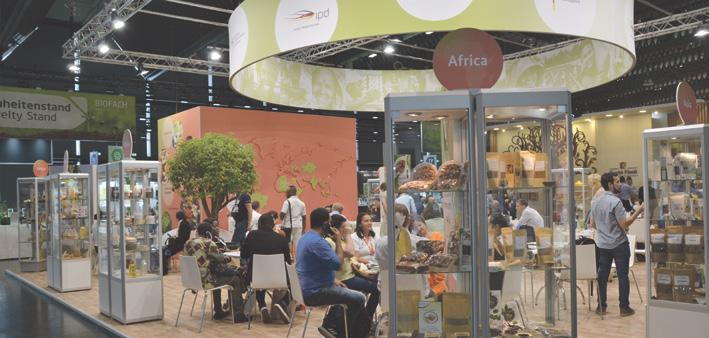
using pesticides or artificial fertilizers. Coconut farmers in Indonesia, for example, use the traditional cultivation method of mixed crops. Thereby, they can harvest different amounts of yields throughout the year. Younger companies see organic certification as an important export requirement and the responsible use of natural resources as a matter of course.
Many of the products from developing and emerging countries supplement the product range with an organic version and thus close a gap in the market. For instance, “Savour Route” from Sri Lanka specializes in high-quality organic cinnamon sticks. The company sources its cinnamon from smallholder farmers, works sustainably and participates in the circular economy. Accordingly, “Savour Route” can guarantee consistent product quality. Moroccan dates and Kenyan macadamia nuts are classic specialities, but rarely offered in organic quality. The family businesses “Dar Tommor” from Morocco and “Privamnuts” from Kenya have decided to avoid all chemical treatments. The companies mentioned stand for a wide range of organic quality products that IPD presents every year at BIOFACH in Nuremberg – again, in 2023, under the motto “Organic Sourcing for Development”.


We know market trends change but what new innovation underpinning the cosmetics industry and upcoming regulatory changes can we expect heading into 2023? Whilst some patterns remain, like the continuing growth of the natural and organic market, others, like inclusive beauty without gender roles, are set to grow. Sustainability, minimalist formulations, natural ingredients, eco-designed packaging, and a real reflection on waste management remain on the agenda.
Sustainability drive continues. The climate crisis, regulatory change and consumer demand continue to drive the need for green and sustainable initiatives. The demand for reusable or refillable products that use less packaging continues to grow with the aim of reducing our dependence on virgin plastic. Avoiding waste
97% natural ingredients
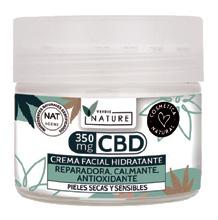
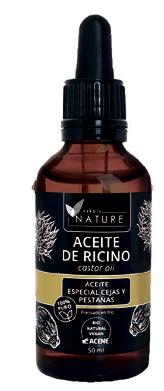
or excess plastic remains a top priority. Sustainable raw material sourcing and innovative formulation aimed at expanding the current waterless (solid) cosmetics product portfolio is expected to increase. A brand’s Corporate Social Responsibility, reflecting how it operates, traces and ensures ethical, social, and environmental aspects both within its organisation and with products, remains of high interest to consumers.
Localism is sought. Linked to sustainability and transparency, this movement aims to support communities where the product is manufactured rather than where the consumer is located. Beauty brands are increasingly expected to get involved with local initiatives and campaigns promoting social benefits and reducing environmental impact.
Skinimalism is back. The trend


of selecting products with low impact and better performance – “less is better” or “Skinimalism” – continues, and refers not only to makeup but also to skin care routines. Consumers are anticipated to focus on quality (and efficiency) over quantity, centring on multifunctional products with low impact and better performance.




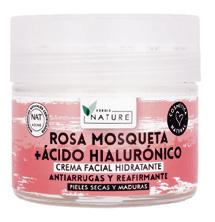
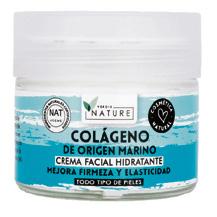
Hyper-fatigue and cost-saving impacts. Linked to preferences for “skinimalism”, the rising cost of living and supply chain disruption are affecting consumers’ pockets. The switch in the mindset of consumers towards their own needs and a refocusing on what really matters to them, including a greater emphasis on the link between beauty and well-being, remains apparent. With inflation-linked costs rising, some of these will, invariably, be passed on to the consumer. High prices can drive more people to cheaper, essential alternatives, and in an increasingly competitive, crowded and

mature market for natural cosmetics certification still offers a means for differentiation and assurance.
Listing Allergens. The final adoption of the proposed draft Act amending the EU Cosmetics Regulation (EU CPR) is provisionally foreseen for Q2 2023. The measures introduce 56 extra fragrance allergens and proposes:
• an obligation to individually label allergens above defined concentrations for leave-on and rinse-off products;
• to subject the same restrictions to substances that can alter to become contact allergens via autooxidation (prehaptens) or on the skin (prohaptens);
• to simplify the naming by: (i) aligning common names and grouping similar substances into one entry; (ii) setting out which name to be used; (iii) adding isomers and by complementing and amending the CAS and EC numbers.
Regulation Revision. Publication of the Commission’s proposed revision of the EU CPR to align with the Chemical Strategy for Sustainability remains anticipated in Q1 2023. The proposal will be open to consultation. The earliest foreseen date for enactment of any proposed changes to the EU CPR would be 2026. The proposal will cover aspects ranging from product safety to digital labelling.
Unfair Commercial Practices. Following the IMCO draft report to the Commission’s proposal amending Directives 2005/29/EC (UPCD) and 2011/83/EU to empower consumers and protect against greenwashing, discussions opened to include the possibility of a pre-approval mechanism for sustainability labels or tools. The IMCO draft expands upon the EC’s proposal which relies on an external assessment through certification or verification of the methodologies to support labels or tools. A final vote on the IMCO amendments is expected in late Q1 2023 before the Parliamentary plenary session.
Green Claims. The EC is expect-
ed to release its proposal on substantiating green claims in early 2023. Most likely, green claims made on products will have to follow the PEF (Product Environmental Footprint) calculation method. Whilst the UCPD amendment provides a ‘safety net’ for consumers against greenwashing, the EC is looking into how specific environmental claims should be communicated. The two options on the table include: (i) obliging the use of the PEF method to substantiate claims covering only a narrow list of impacts; (ii) covering green claims beyond aspects in the scope of the PEF.
Packaging and Packaging Waste. To tackle the challenges related to waste, overpackaging, and sustainable production, revision of the Packaging and Packaging Waste Directive (PPWD) began in Q4 2021. Its revised scope expands beyond the existing PPWD to also include measures to reduce (over)packaging and packaging
waste alongside measures to improve packaging design for reuse and recycling and to drive the uptake of recycled content. A Q4 2022 leaked draft proposal raised concerns related to the key role of recycling in circularity, mandatory collection and recycling whilst scaling-up refill and reuse, infrastructure investment, and the preservation of functionality and product safety. Outside the revision process, environmental regulations in France (AGEC) and Italy (Legislative Decree nº 116) already specify mandatory labelling requirements for cosmetics.
Soap masters since 1921 specialised in developing and producing ecological cleaning products based on traditional soap and all in one cosmetic bar soaps. High quality and sustainable formulas with vegetable ingredients 100% from natural origin. Warmly handmade in Spain by Jabones Beltrán.
Stand 3C - 551
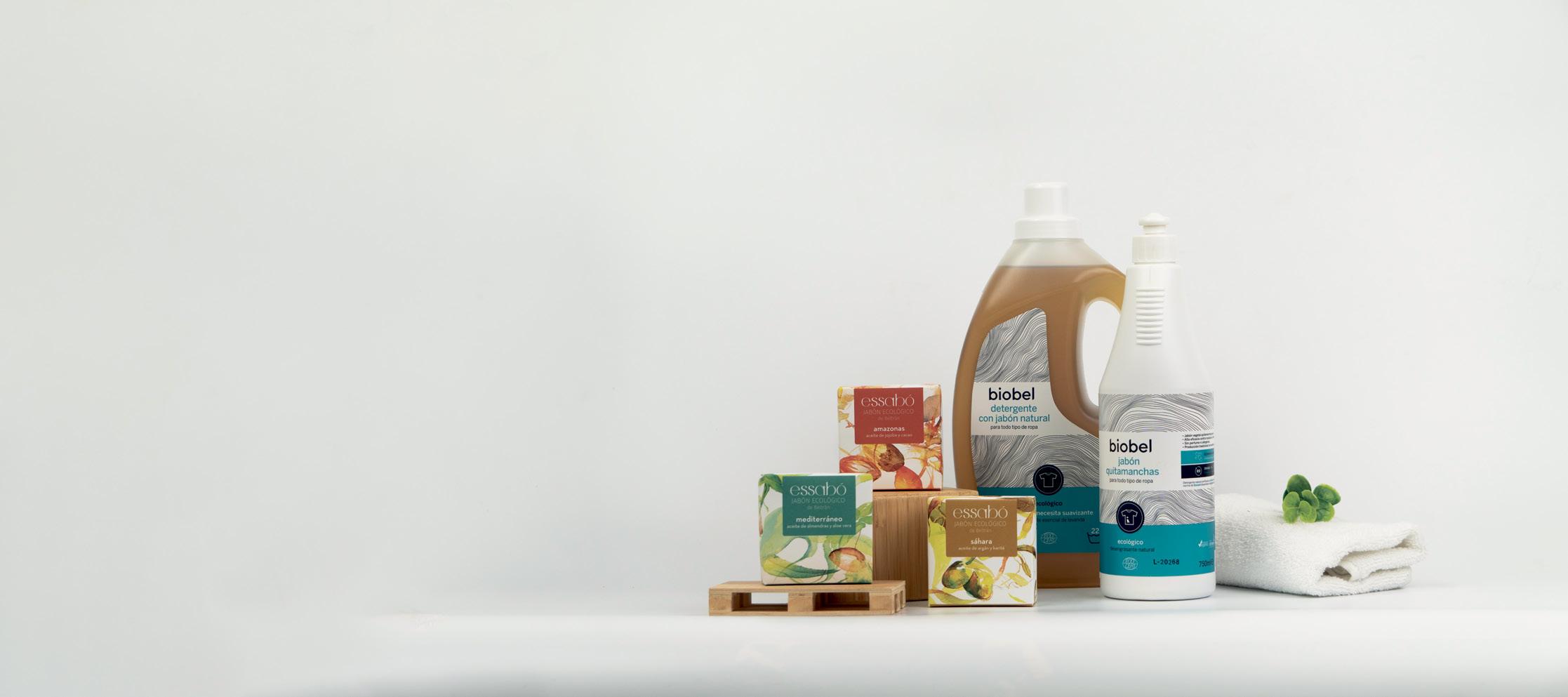
2022 has not only been a year of escalating crises around the world, but also the year that saw the Naturland association celebrate its 40th anniversary. In our interview, CEO Steffen Reese signals hope for the organic sector despite all the challenges – but also calls on politicians, businesses, and consumers to back change.

Mr. Reese, last year Naturland celebrated its 40th anniversary. How has the association developed over the last four decades?


In 1982, when Naturland was founded by a group of German farmers, scientists, and residents, there was no such thing as the EU organic regulation. With great enthusiasm and some idealism, they started to establish sustainable, agricultural guidelines. Today, Naturland deals not only with organic agriculture, but also with sustainable aquaculture and fisheries, beekeeping, forestry, processing,
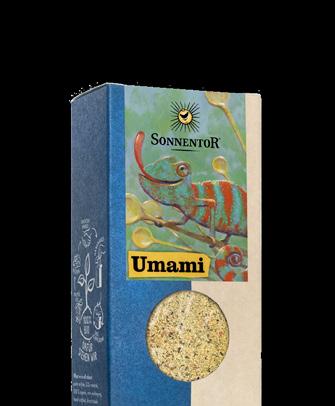 Ina Hiester, Journalist|mail@organic-matters.de
Ina Hiester, Journalist|mail@organic-matters.de



trade, and gastronomy. With 140.000 farmers from 60 countries working to our guidelines for sustainable and fair practices, we are the biggest international organic association. To reach our goal of providing organic food for everyone around the globe, we support our members, confront political, environmental, and social shortcomings, and raise awareness.
The organic sector does not remain unaffected by the war in Ukraine, rising energy costs, and inflation. Do you think the sector can withstand these challenges?
Most certainly, it can. But when we look at the current development of the organic sector, we must always take the effects of the Covid pandemic into account. In Germany and in many other countries, this led to an unprecedented demand for organic products. It is therefore advisable to compare the figures from 2022 with those from the year 2019, before the pandemic. Hence, we can see that, except for a few product groups such as meat products and eggs, the organic sector is still performing rather well. Therefore, I do believe that organic can not only persist, but continue to thrive. But for this to happen, we must undertake some critical political, corporate, and individual changes.

Can you give us an example of the corporate changes that are needed?

Let us look at the retailers who sell both organic and conventional products. There is no doubt that the integration of organic into their offer has fostered organic growth substantially. Today, they compete no longer only on a price level, but also over who has the greenest image. However, I wish that they would actually sell as much organic as they claim. There is a gap between communication and reality that requires bridging. Another problem lies within the food companies: many of them have both organic and conventional brands, which distorts competition. We need more businesses that are 100 percent committed to organic – just like our Naturland farmers.
What needs to happen politically to support sustainable, organic businesses?
On a political level, there is already plenty of ambition for more sustainability. We have the United Nations Sustainable Development Goals and the European Green Deal with its Farm to Fork Strategy. We organise conferences to discuss how to tackle climate change and the biodiversity
crisis. But our politicians keep failing dramatically in agreeing on the necessary measures. We need agricultural policies that fit our goals! Political efforts must focus much more on sustainable and fair food production – for example, by reducing the VAT rate on organic products. Instead of subsidising the status quo, we need more funds for sustainable research and development. And we must provide targeted support to those who farm for a better planet. To those who say ‘no!’ to poisoning our fields and our water, who capture emissions in healthy soils, and who treat both people and animals with respect.
What can consumers do to encourage a more sustainable food system?
Buying organic products is the obvious answer – but there is more than that. Since the beginning of the war in Ukraine, we worry a lot about our gas bills and our purchasing power. In the meantime, the biodiversity and climate crises are ongoing. On an individual level, there is not that much we can do about the lack of Russian gas or the rise of costs. But every day, we can play our part by consuming more responsibly. Not only by buying organic, but also by eating less meat and wasting less food.
